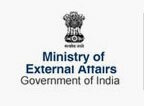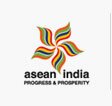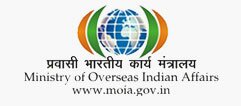Person of Indian Origin (PIO) Card
Am I eligiblefor a PIO card?
- If you have held at any time an Indian passport; or
- If either of your parents or grandparents or great grandparents were born in India or permanently resident in India [as defined in the Government of India Act, 1935 and other territories that became part of India thereafter]
- If your spouse is a Citizen of India or a Person of Indian Origin covered under (a) or (b) above
However, the following are not eligible for PIO card:
- If you were or are citizen ofAfghanistan, Bangladesh, Bhutan, Nepal, Pakistan, Sri Lanka and China
-
If either of your parents or grandparents were born in or citizens of Afghanistan, Bangladesh, Bhutan, Nepal, Pakistan, Sri Lanka and China
If I am not a Malaysian national, can I apply for PIO card in High Commission of India, Kuala Lumpur?
If you are not a Malaysian passport holder, then you should be staying in Malaysia under the “Malaysia My Second Home Programme” or staying in Malaysia on an Employment, Dependant or Residence Visa for more than 2 years.
If I am working for Malaysian Government, then am I eligible to apply for PIO card?
If you are working in the Ministry of Foreign Affairs, Defence Ministry or any of the Malaysian Defence services, then you are not eligible for PIO card. Similarly, your dependent family members will also be not eligible for PIO card.
I do not have Malaysian citizenship. Am I eligible for PIO card?
If you are holding only a Certificate of Identity, then you are not eligible for PIO card.
What application should I fill to get a PIO card?
Please click on the PIO application
What documents should I submit with the PIO application?
A) Mandatory documents with all applications:
- Duly completed application form in duplicate
- 4 recent passport size photographs (white background)
- Statutory declaration duly endorsed by the Commissioner of Oaths - (no need for the statutory declaration for children below 18 years)
- 2 photocopies of first page of the passport
- Malaysian Identity Card
- Either of the following:
- If you are employed, then a letter from your employer
- If you are self-employed: SSM (Suruhanjaya Syarikat Malaysia)/Companies Commission of Malaysia.
B) Documents to prove Indian origin (any one of the following)
 In case you were previously Indian citizen:
In case you were previously Indian citizen:
-
Copy of your previous Indian passportand/or Surrender/Renunciation Certificate issued by High Commission of India (those who have acquired Malaysian citizenship from the year 2000 onwards) OR Your Nativity Certificate from concerned Village Administrative Officer in India endorsed by Thasildar or 1st class Magistrate/Collector of the District
- Copy of Malaysian Citizenship Certificate or Malaysian Certificate of Registration (if it is in Bahasa Malaysia, then translated in English by Court Interpreter/Translator)
 If either of your parent are/were Indian national (have/had permanent residency in Malaysia)
If either of your parent are/were Indian national (have/had permanent residency in Malaysia)
- Copy of your Birth Certificate (if it is in Bahasa Malaysia, then translated in English by Court Interpreter/Translator)
- Copy of Indian passports of your father and/or mother or JPN extract of the Certificate of Registration of your parent who is/was Indian national (if it is in Bahasa Malaysia, then translated in English by Court Interpreter/Translator) OR Nativity Certificate of your parent from concerned Village Administrative Officer in India endorsed by Thasildar or 1st class Magistrate/Collector of the District OR Any other supporting documents of your parents to prove their Indian origin
- Copy of Birth Certificate of your parent, in case one of the parent is not Indian
 If either of your grandparents are/were Indian national(have/had permanent residency in Malaysia)
If either of your grandparents are/were Indian national(have/had permanent residency in Malaysia)
- Copy of your Birth Certificate (if it is in Bahasa Malaysia, then translated in English by Court Interpreter/Translator)
- Copy of Birth Certificate of your parents or Malaysian Certificate of Registration or JPN extract of any of these (if it is in Bahasa Malaysia, then translated in English by Court Interpreter/Translator)
- Copy of Indian passports of your grandfather and/or grandmother or JPN extract of the Certificate of Registration of your grandparent who is/was Indian national (if it is in Bahasa Malaysia, then translated in English by Court Interpreter/Translator) OR Nativity Certificate of your grandparent from concerned Village Administrative Officer in India endorsed by Thasildar or 1st class Magistrate/Collector of the District OR Any other supporting document of your grandparents to prove their Indian origin
- Copy of Birth Certificate of your parent/grandparent, in case any of them is/was not Indian
 If either of your great grandparents were Indian national
If either of your great grandparents were Indian national
- Copy of your Birth Certificate (if it is in Bahasa Malaysia, then translated in English by Court Interpreter/Translator)
- Copy of Birth Certificate of your parents or Malaysian Certificate of Registration or JPN extract of any of these (if it is in Bahasa Malaysia, then translated in English by Court Interpreter/Translator)
- Copy of Birth Certificate of your grandparents or Malaysian Certificate of Registration or JPN extract of any of these (if it is in Bahasa Malaysia, then translated in English by Court Interpreter/Translator)
- Copy of Indian passports of your great grandfather and/or great grandmother or JPN extract of the Certificate of Registration of your great grandparent who is/was Indian national (if it is in Bahasa Malaysia, then translated in English by Court Interpreter/Translator) OR Nativity Certificate of your great grandparent from concerned Village Administrative Officer in India endorsed by Thasildar or 1st class Magistrate/Collector of the District OR Any other supporting document of your great grandparents
- Copy of Birth Certificate of your parent/grandparent/great grandparent, in case any of them are/were not Indian
 If my spouse is an Indian national
If my spouse is an Indian national
- Copy of Indian passport of your spouse with your name endorsed on his/her passport (should be married for more than one year)
- Copy of your Marriage Certificate (if it is in Bahasa Malaysia, then translated in English by Court Interpreter/Translator)
- Copy of your Birth Certificate(if it is in Bahasa Malaysia, then translated in English by Court Interpreter/Translator)
- Copy of Birth Certificate of your parent/grandparent, in case any of them are/were not Indian
- Declaration by your spouse that he/she does not have any objection for issuance of PIO card
 If my parents hold a PIO card holder
If my parents hold a PIO card holder
- Copy of your Birth Certificate(if it is in Bahasa Malaysia, then translated in English by Court Interpreter/Translator)
- Copy of your parent’s PIO card
- All documents submitted by your parents to obtain PIO card
 If my spouse holds a PIO card holder
If my spouse holds a PIO card holder
- Copy of your Birth Certificate(if it is in Bahasa Malaysia, then translated in English by Court Interpreter/Translator)
- Copy of your parent’s Birth Certificate (if it is in Bahasa Malaysia, then translated in English by Court Interpreter/Translator)
- Copy of your spouse’s PIO card
- Copy of your Marriage Certificate (if it is in Bahasa Malaysia, then translated in English by Court Interpreter/Translator)
- All documents submitted by your spouse to obtain PIO card
How do I get a JPN extract?
You can contact JPN office (http://www.jpn.com.my) and makea request on payment of RM 10/- and the application for the kind of document you are seeking from them. Usually the JPN extract is given in bilingual, including English. However, if the extract is given in Malay language, you are requested to get it translated by official Court Interpreter/Translator.
What do I do if my parents or grandparents or great grandparents do not have a copy of their Indian passport?
If you do not have copy of the Indian passport or Indian travel document of your parents/grandparents/great grandparents, then any Malaysian document which shows place of birth as India or any city in India such as Malaysian passport, Malaysian Certificate of Naturalisation or Certificate of Registration or Certificate of Citizenship or Citizenship card or Form M or Form W or Entry Permit issued by Malaysian Authority, then these can be considered instead of Indian Passport.
Do I have to submit any other document in addition to what has been mentioned above?
In case the High Commission official find that the document provided raises ambiguity about the Indian origin, and if the applicant or his/her Parents or Grandparents or Great Grandparents were at any time nationals of Afghanistan or Bangladesh or Bhutan or China or Nepal or Pakistan or Sri Lanka, then you may be requested to submit additional documents.
Why am I asked Birth Certificate of my parent or Grand parent or Great Grand parent in case they were not Indians?
This is to check if they are/were not nationals of Afghanistan or Bangladesh or Bhutan or China or Nepal or Pakistan or Sri Lanka.
Do I have to submit original documents also?
When you apply for PIO Card in the High Commission, then High Commission officials will check the original documents against the copies submitted and return the originals to you. Please note that original documents are required for verification only and would be returned to from the counter itself. High Commission will not retain any of the original documents.
Will I be given any acknowledgement slip after I submit the PIO card application?
High Commission will issue you an acknowledge slip once your PIO card application is accepted.
Why my PIO card application has been rejected after accepting the same at the High Commission counter few days back?
Acceptance of PIO Card application at the High Commission counter is not a guarantee that PIO card will be issued. High Commission follows due internal process to examine each request and you will be informed in due course about the decision on your application. At times additional documents are sought. In certain cases, if the High Commission needs to verify any document from India, especially those issued by Indian authority, there could be likelihood of longer process time. High Commission is not obliged to give reasons for rejecting any PIO card application. Applicants are advised to keep in touch with the High Commission to follow up on their application.
What is usual process time to issue PIO card?
The usual process time is around 30 days. In certain cases, if the High Commission needs to verify any document from India, especially those issued by Indian authority, there could be likelihood of longer process time. However, in case you feel that there has been unreasonable delay in the processing of your PIO card request, you can always reach us at the following email id: and
Whom should I contact to follow up on my PIO card application?
You can always reach us at the following email id: and .
Where can I apply for PIO card?
All applicants are required to personally submit their PIO applications at the High Commission of India, Kuala Lumpur, except minors, whose parents can submit the application on their behalf.
Do children also have to come personally to apply for PIO card application?
Children, below 12 years are exempted from personally coming to the High Commission to apply for their PIO card application. However, their application can be submitted by their parents.
Where is the High Commission of India, Kuala Lumpur located?
TheHigh Commission of India is located at:,No. 1, JalanMon', .
Fax:
What is the time of submission of PIO card application?
You can submit your PIO applications on all working days between 9:30 am and 12:30 pm.
What is the PIO card fees?
PIO fees isRM 1178/- for adult and RM 593/- for children below 18 years old. You can pay cash directly at the High Commission or send the fees as a Bank Draft payable to “HIGH COMMISSION OF INDIA, KUALA LUMPUR” along with PIO application acknowledgement by post will beRM 1183/- for adult and RM 598/- for children below 18 years. Payment is accepted only after the application has been approved.
Do I have to pay the fees at the time of submission of application?
No. High Commission will accept fees only after your case has been approved for issuance of PIO card.
Do I have to come personally to deposit the fee?
No.You can send the fees as a Bank Draft payable to “HIGH COMMISSION OF INDIA, KUALA LUMPUR” along with PIO application acknowledgement by post. Please note that in case you want the High Commission to send your PIO card by registered post, then please add an additional RM 5 per application to the PIO fees and fees payable as cash or bank draft will be RM 1183/- for adult and RM 598/- for children below 18 years. Payment is accepted only after the application has been approved.
What is the time of collection of PIO card?
PIO card is issued within one week after collection of PIO card fees, at the Counter of High Commission from 4.30 pm to 5.30 pm. In case you want the High Commission to send the PIO card by registered post, please make a written request while making the payment of PIO card application fees. High Commission will despatch the PIO cards by Poslaju
What is the validity of a PIO card?
A PIO Card shall be valid for a period of fifteen (15) years from the date of issue subject to the validity of the passport of the applicant.
Can a duplicate PIO card be issued in case of loss of the Card?
The High Commission issues duplicate PIO card in case of loss of the PIO card. Following two additional (?) documents are required to be submitted along with documents give in the following link(?)
- Police report of loss of PIO card (with English translation if the police report is in Bahasa Malaysia)
- Photocopy of the lost PIO card (if available)
- Charges for duplicate PIO card is RM 388.00 (upon approval only)
Do I need to apply for a new PIO card if I change my Passport?
A PIO card is issued against the passport of the applicant. In case you get a new passport, the same is required to be endorsed on the PIO Card. This service is available gratis(free of charge) at the High Commission. Please bring your old and new passport along with the PIO Card and the endorsement will be made within half an hour. Applicant can also travel to India carrying the old passport along with the new passport and the PIO card.
I need to change my personal particulars/photograph in the PIO card, what should I do ?
For any change of personal particulars/photo in the PIO card, a new PIO card has to be issued. Applicants have to submit the PIO application along with the appropriate documents. Documentary requirements will vary from case to case. Therefore, please mail at or and enquire about the same. Please note that application for change of name must be submitted with a change of name deed (JPN letter) and passport reflecting the new name.
What is the fees for change in personal particulars/photograph in the PIO card?
Fees for changing personal particulars/photographs in the PIO card is same as that of issuing a new PIO card, that isRM 1178/- for adult and RM 593/- for children below 18 years old. You can pay cash directly at the High Commission or send the fees as a Bank Draft payable to “HIGH COMMISSION OF INDIA, KUALA LUMPUR” along with PIO application acknowledgement by post. Please note that in case you want the High Commission to send your PIO card by registered post, then please add an additional RM 5 per application to the PIO fees and fees payable as cash or bank draft will be RM 1183/- for adult and RM 598/- for children below 18 years. Payment is accepted only after the application has been approved.
Can I apply for PIO card in India?
If you are already in India on Long Term Visa (more than one year), you can apply for a PIO Card at the FRRO in the following cities:-
- Delhi : - Foreigners Regional Registration Officer, , , .
- Mumbai : - Foreigners Regional Registration Officer, Annex – II, Commissioner of Police, .
- Kolkata : - Foreigners Regional Registration Officer, 237, AcharyaJagdish Chandra Bose Road, .
- : - Additional Deputy Director, Bureau of Immigration, , .
- Chennai : - Chief Immigration Officer, Bureau of Immigration, ShastriBhavan Annex, , .
Is there a specific email id to make enquiries regarding PIO card?
Yes, you can contact us the following email id: .
What are the advantages of having a PIO card?
- PIO card allowsunrestricted multiple entries into India for a period of 15 years.
- PIO card holder can use it as a multipurpose visa for a period of 15 years. That means, PIO card holder can undertake activities, such as business, tourism, education, medical treatment or attend conferencein India.
- PIO card holder is exemption from the requirement of registration if stay in India does not exceed 6 months (180 days). Should the continuous stay exceed 6 months, registration will be required within 30 days of the expiry of six months with the concerned Foreigners Regional Registration Officer (FRRO) or Foreigner Registration Officer (FRO) in India.
- PIO card holders are at par with Non-Resident Indians with respect to facilities available to the latter in economic, financial and educational fields.
- PIO card holders have all facilities in matter of acquisition, holding, transfer and disposal of immovable properties in India except in matter relating to the acquisition of agricultural/plantation properties.
- PIO card holderscan avail the educational facilities which are available to children of NRIs, such as getting admission to educational institutions in India including medical colleges, engineering colleges, Institutes of Technology, Institute of Management, etc, under the general categories.
- PIO card holder can avail facilities available under the various housing schemes of LIC, State Government and other Government agencies.
- Special counters have been set up at the Immigration checkposts for PIO card holder allows for speedy clearance.
- Please note that PIO card does NOT entitle the cardholder to undertake any missionary, mountaineering and research work in India, without prior permission of the Government of India. Prior permission of the competent authority is also required for visiting restricted/protected area. (for details, visit http://mha.nic.in
 In case you were previously Indian citizen:
In case you were previously Indian citizen:




